This article was co-authored by Andrea Rudominer, MD, MPH and by wikiHow staff writer, Hunter Rising. Dr. Andrea Rudominer is a board certified Pediatrician and Integrative Medicine Doctor based in the San Francisco Bay Area. Dr. Rudominer has over 15 years of medical care experience and specializes in preventive health care, obesity, adolescent care, ADHD, and culturally competent care. Dr. Rudominer received her MD from the University of California, Davis, and completed a residency at the Lucile Packard Children's Hospital at Stanford University. Dr. Rudominer also has an MPH in Maternal Child Health from the University of California, Berkeley. She is a Member of the American Board of Pediatrics, a Fellow of the American Academy of Pediatrics, a Member and Delegate of the California Medical Association, and a Member of the Santa Clara County Medical Association.
There are 20 references cited in this article, which can be found at the bottom of the page.
wikiHow marks an article as reader-approved once it receives enough positive feedback. This article received 20 testimonials and 100% of readers who voted found it helpful, earning it our reader-approved status.
This article has been viewed 1,711,357 times.
It’s such a pain dealing with cold sores or fever blisters since they can be uncomfortable or embarrassing. Even though you can never permanently get rid of the virus that causes cold sores, there are a lot of things you can do to make them less noticeable. We’ll cover a few different medicines and home remedies you can try before moving on to ways to prevent new sores from forming.
Steps
Medical Remedies
-
1Apply topical cold sore cream to combat pain and symptoms. There are a lot of over-the-counter options you can go with, but your doctor could prescribe a stronger treatment. Creams help with redness, soreness, and inflammation, and may speed up healing time. Some topical treatments you can try include:[1]
- Docosanol (Abreva), which is FDA-approved and available over-the-counter.
- Topical Acyclovir (Zovirax) and Penciclovir (Denavir), which may be prescribed to you by your doctor.
- Creams with 1% topical ointment of lemon balm oil or 0.5% aloe vera extract, which may help a cold sore heal when you first notice it.[2]
- 5 drops of eucalyptus essential oil, 3 drops of bergamot, and 2 drops of tea tree essential oil in 1 ounce of a carrier oil work well for cold sores as well.[3]
-
2Relieve pain with ibuprofen or acetaminophen. While they won't make your cold sore go away, these medications will help you deal with any discomfort or swelling. Take the recommended dosage on the packaging and wait for your pain to subside. Just remember to keep being careful since the sore is still contagious even when it’s not causing pain.[4]
- Avoid using ibuprofen if you have asthma or stomach ulcers.
Advertisement -
3Apply a gel patch to hide the sore while it’s healing. Cold sore patches have hydrocolloid gel that creates a tight seal around the wound so it heals faster. Look for a patch that’s large enough to cover your cold sore at your local pharmacy and press it tightly on against your skin.[5]
-
4Try taking lysine. Lysine is a building block of protein, and has been shown in studies to effectively treat and prevent cold sores. Pick up some lysine from your local health food store or the supplement section of your nearest pharmacy. Aim to take around 3 grams of lysine every day to help reduce your symptoms.[6]
- Talk to your doctor before taking lysine if you have cardiovascular or gallbladder disease since it may have adverse effects.
-
5See your doctor for prescription antiviral pills. These can help decrease the duration of your cold sores, but you'll need to get a prescription from your doctor. Schedule an appointment with them and let them fill out the prescription. Start the medications as soon as you can following your doctor’s orders.[7]
- Start Acyclovir (Xerese, Zovirax) before cold sores fully flare up. Take it 5 times a day for 5 days.
- Take Valacyclovir (Valtrex) at the first sign of a cold sore and then 12 hours later.
- Famciclovir (Famvir) can be given as a single dose of medicine.
Home Remedies
-
1Apply aloe vera to treat pain and prevent spread. Aloe reduces pain and has antiviral properties, so it's a really good thing to use to help heal your cold sore. Put aloe gel with a 0.2–5% concentration onto a cotton swab and dab it onto the cold sore for instant relief.[8] Use aloe about 2–3 times a day, or whenever you need relief.
- Avoid touching your cold sore directly with your hands so you don’t accidentally spread the virus.
- Only dab the aloe gel onto the sore. If you rub it in, you could irritate your skin.
-
2Use a cold compress to bring down redness. Wet a towel with cool water or grab an ice pack and hold it against your cold sore. Keep it there for 5–10 minutes as many times as you want during the day. The cold temperature might help promote healing, but it will definitely get rid of crusty skin and make the sore less noticeable.[9]
- You can instead wet the towel with warm water to treat pain from cold sore blisters.
-
3Apply petroleum jelly to prevent cracked skin. Dip the end of a cotton swab into a tub of petroleum jelly and gently dab it onto your cold sore. If the skin around your sores looks dry or cracked, apply more petroleum jelly there too. Sores heal faster when they’re moist, so the petroleum jelly will prevent it from drying out and may make your sore disappear sooner.[10]
-
4Suck on ice for pain relief, burning, or itching. Put a couple of ice cubes in your mouth and run them over your lips to help cool down your sore. The cold temperatures will help ease pain around your sore and make it a little more manageable.[11]
- While this doesn’t necessarily make your cold sore heal faster, it will make it a lot easier to live with while it goes away.
-
5Apply propolis to speed up healing. Propolis, also known as synthetic beeswax, may shorten the length of your cold sore. Look at your local pharmacy for a 3% propolis ointment and apply it to your cold sore with a cotton swab. Use the propolis up to 5 times a day.[12]
-
6
Prevention
-
1Keep your lips protected from the sun at all times. Getting too much sun can irritate your skin and could cause a cold sore to pop up. Apply lip balm with sun protection of at least SPF 15 when you go out in the sun. Reapply it frequently throughout the day so your lips stay protected.[15]
- If you do overexpose your lips to the sun, try to ice them as soon as possible for several minutes.
-
2Avoid sharing items or kissing to stop the spread of the virus. Cold sores are caused by the herpes simplex virus, and it usually spreads through bodily fluids. It could be present on an infected person’s lip, even if there’s no obvious sore. Never share eating utensils or beverages with anybody, especially when you have an active cold sore. Even towels, razors, and toothbrushes can spread cold sores so never use anyone else’s. Kissing also spreads cold sores, so be mindful of who you’re with.[16]
- Avoid sharing lipstick, lip balm, lip gloss, or other lip products.
- Oral sex, especially during an outbreak, can transmit the herpes virus from lips to the genitals or vice versa.
-
3Avoid cold sore triggers. Since the cold sore virus lies dormant in your skin, there’s a possibility that your cold sores will recur. A lot of things can cause a cold sore to come back, including hormonal changes, fatigue, injuries, or even another viral infection. Try your best to stay away from anything that may cause a new cold sore to emerge.[17]
- Menses and pregnancy can cause a cold sore to act up.
-
4
-
5Maintain a healthy diet and lifestyle. Getting sick weakens your immune system and could lead to a breakout.[19] Make sure you're getting all your necessary vitamins. Eat lots of dark leafy greens, colorful vegetables, nuts, lean meats, and fruit. Limit the amount of fat, sugar, and processed food in your diet as well.[20] Be sure to set aside 30 minutes a day to get physically active and exercise since it also helps your body fight against disease.[21]
- Drink white and green tea since they’re rich in antioxidants that strengthen your immune system and cleanse your body of toxins.
- Stay hydrated throughout the day by drinking water whenever you’re thirsty.
- Try to sleep for at least 8 hours each night so your body has time to recover.
-
6Identify cold sores before they surface. Know the signs so you can act before your cold sore has a chance to form. If you feel tenderness, tingling, burning, itching, numbness, and pain around your lips, it may mean a cold sore is forming. When you first start getting a cold sore, you’ll develop red, irritated skin around the area. Then, a blister forms, bursts, and crusts over before it starts healing.[22]
- You may get fevers and other cold and flu symptoms when you get cold sores.
-
7Know that cold sores are caused by several variations of the herpes simplex virus (HSV). Despite the name, cold sores aren’t caused by colds. The herpes simplex virus type 1 (HSV-1) is most often the cause. It's really common, and you get it from contact with an infected person’s skin or body fluid. Although you can't eliminate the virus, you can reduce how often you have outbreaks. [23]
- Cold sores form as the virus reproduces and damages your skin.
- The herpes virus hides in nerve cells between outbreaks so it can never be fully cured.
- Once your skin turns itchy and red, the virus is present and you can spread it. You’re most contagious when you have blisters, especially just after they burst. You can’t spread the virus skin-to-skin once they’ve healed. However, you can pass it through your saliva at any time.
Expert Q&A
Did you know you can get premium answers for this article?
Unlock premium answers by supporting wikiHow
-
QuestionHow do I stop getting cold sores?
 Andrea Rudominer, MD, MPHDr. Andrea Rudominer is a board certified Pediatrician and Integrative Medicine Doctor based in the San Francisco Bay Area. Dr. Rudominer has over 15 years of medical care experience and specializes in preventive health care, obesity, adolescent care, ADHD, and culturally competent care. Dr. Rudominer received her MD from the University of California, Davis, and completed a residency at the Lucile Packard Children's Hospital at Stanford University. Dr. Rudominer also has an MPH in Maternal Child Health from the University of California, Berkeley. She is a Member of the American Board of Pediatrics, a Fellow of the American Academy of Pediatrics, a Member and Delegate of the California Medical Association, and a Member of the Santa Clara County Medical Association.
Andrea Rudominer, MD, MPHDr. Andrea Rudominer is a board certified Pediatrician and Integrative Medicine Doctor based in the San Francisco Bay Area. Dr. Rudominer has over 15 years of medical care experience and specializes in preventive health care, obesity, adolescent care, ADHD, and culturally competent care. Dr. Rudominer received her MD from the University of California, Davis, and completed a residency at the Lucile Packard Children's Hospital at Stanford University. Dr. Rudominer also has an MPH in Maternal Child Health from the University of California, Berkeley. She is a Member of the American Board of Pediatrics, a Fellow of the American Academy of Pediatrics, a Member and Delegate of the California Medical Association, and a Member of the Santa Clara County Medical Association.
Board Certified Pediatrician & Integrative Medicine Doctor Eating a diet rich in the amino acid lysine, which is found in meat, fish, and dairy, may help prevent cold sores. You can also take a supplement that contains lysine, zinc, and vitamin C to help prevent sores from forming. However, foods that are rich in arginine, like nuts, grains, chocolate, and refined sugars, may make you more likely to develop cold sores.
Eating a diet rich in the amino acid lysine, which is found in meat, fish, and dairy, may help prevent cold sores. You can also take a supplement that contains lysine, zinc, and vitamin C to help prevent sores from forming. However, foods that are rich in arginine, like nuts, grains, chocolate, and refined sugars, may make you more likely to develop cold sores. -
QuestionHow can I prevent a cold sore?
 Andrea Rudominer, MD, MPHDr. Andrea Rudominer is a board certified Pediatrician and Integrative Medicine Doctor based in the San Francisco Bay Area. Dr. Rudominer has over 15 years of medical care experience and specializes in preventive health care, obesity, adolescent care, ADHD, and culturally competent care. Dr. Rudominer received her MD from the University of California, Davis, and completed a residency at the Lucile Packard Children's Hospital at Stanford University. Dr. Rudominer also has an MPH in Maternal Child Health from the University of California, Berkeley. She is a Member of the American Board of Pediatrics, a Fellow of the American Academy of Pediatrics, a Member and Delegate of the California Medical Association, and a Member of the Santa Clara County Medical Association.
Andrea Rudominer, MD, MPHDr. Andrea Rudominer is a board certified Pediatrician and Integrative Medicine Doctor based in the San Francisco Bay Area. Dr. Rudominer has over 15 years of medical care experience and specializes in preventive health care, obesity, adolescent care, ADHD, and culturally competent care. Dr. Rudominer received her MD from the University of California, Davis, and completed a residency at the Lucile Packard Children's Hospital at Stanford University. Dr. Rudominer also has an MPH in Maternal Child Health from the University of California, Berkeley. She is a Member of the American Board of Pediatrics, a Fellow of the American Academy of Pediatrics, a Member and Delegate of the California Medical Association, and a Member of the Santa Clara County Medical Association.
Board Certified Pediatrician & Integrative Medicine Doctor There is some evidence that eating a diet rich in the amino acid lysine can help prevent cold sores. You can get this acid in things like meat, fish, and dairy. Avoid arginine-rich foods like nuts, grain, chocolate, and refined sugars. A lysine, zinc, and a vitamin C, supplement may help prevent cold sores as well.
There is some evidence that eating a diet rich in the amino acid lysine can help prevent cold sores. You can get this acid in things like meat, fish, and dairy. Avoid arginine-rich foods like nuts, grain, chocolate, and refined sugars. A lysine, zinc, and a vitamin C, supplement may help prevent cold sores as well. -
QuestionDoes bursting the blister on the cold sore speed up the healing process?
 Marsha Durkin, RNMarsha Durkin is a Registered Nurse and Laboratory Information Specialist for Mercy Hospital and Medical Center in Illinois. She received her Associates Degree in Nursing from Olney Central College in 1987.
Marsha Durkin, RNMarsha Durkin is a Registered Nurse and Laboratory Information Specialist for Mercy Hospital and Medical Center in Illinois. She received her Associates Degree in Nursing from Olney Central College in 1987.
Registered Nurse
Warnings
- Don't touch the sore with your fingers. This will only keep it irritated longer, and greatly increases your risk of spreading the virus.⧼thumbs_response⧽
- Never cover up a cold sore with makeup. Foundation and cover up will only aggravate the problem.⧼thumbs_response⧽
- Wash and switch pillowcases every night during an outbreak.⧼thumbs_response⧽
- If your outbreaks are very severe or frequent, see a doctor or set up an appointment with a dermatologist.⧼thumbs_response⧽
- Salty or acidic foods may add to your discomfort if they come in contact with the sore. Citrus foods like lemon juice, for instance, sting incredibly.⧼thumbs_response⧽
- When washing the sore, make sure NOT to let the water get in your eye under any circumstances. If the fluid in the sores gets in your eye, it spreads the herpes virus to your eye, which can cause infection or ulceration of the cornea. This could be a very dangerous condition called ocular herpes.[24]⧼thumbs_response⧽
References
- ↑ http://www.mayoclinic.org/diseases-conditions/cold-sore/basics/lifestyle-home-remedies/con-20021310
- ↑ Andrea Rudominer, MD, MPH. Board Certified Pediatrician & Integrative Medicine Doctor. Expert Interview. 6 May 2020.
- ↑ Andrea Rudominer, MD, MPH. Board Certified Pediatrician & Integrative Medicine Doctor. Expert Interview. 6 May 2020.
- ↑ https://www.nhsinform.scot/illnesses-and-conditions/mouth/cold-sore#treating-cold-sores
- ↑ https://www.nhsinform.scot/illnesses-and-conditions/mouth/cold-sore#treating-cold-sores
- ↑ https://www.ncbi.nlm.nih.gov/pmc/articles/PMC6419779/
- ↑ https://www.aad.org/public/diseases/a-z/cold-sores-treatment
- ↑ https://www.ncbi.nlm.nih.gov/pmc/articles/PMC4771053/
- ↑ https://www.mayoclinic.org/diseases-conditions/cold-sore/diagnosis-treatment/drc-20371023
- ↑ https://newsnetwork.mayoclinic.org/discussion/mayo-clinic-q-and-a-cold-sore-virus-can-wake-up-after-remaining-dormant-for-years/
- ↑ https://www.aad.org/public/diseases/a-z/cold-sores-self-care
- ↑ https://medlineplus.gov/druginfo/natural/390.html
- ↑ https://www.mayoclinic.org/diseases-conditions/cold-sore/diagnosis-treatment/drc-20371023
- ↑ https://pubmed.ncbi.nlm.nih.gov/11799306/
- ↑ https://www.nhs.uk/conditions/cold-sores/
- ↑ https://www.nhsinform.scot/illnesses-and-conditions/mouth/cold-sore#about-cold-sores
- ↑ http://www.mayoclinic.org/diseases-conditions/cold-sore/basics/causes/con-20021310
- ↑ https://www.mayoclinic.org/diseases-conditions/cold-sore/diagnosis-treatment/drc-20371023
- ↑ https://www.betterhealth.vic.gov.au/health/conditionsandtreatments/cold-sores
- ↑ https://www.who.int/initiatives/behealthy/healthy-diet
- ↑ https://medlineplus.gov/ency/article/007165.htm
- ↑ https://www.mayoclinic.org/diseases-conditions/cold-sore/symptoms-causes/syc-20371017
- ↑ http://www.mayoclinic.org/diseases-conditions/cold-sore/basics/causes/con-20021310
- ↑ https://www.nhs.uk/conditions/herpes-simplex-eye-infections/
About This Article
To kill a cold sore fast, apply some aloe vera gel or petroleum jelly to the cold sore—both aloe and petroleum jelly can help reduce pain and make the cold sore heal faster. You can also try dabbing salt or baking soda onto the cold sore with a cotton swab and then rinsing it off after a few minutes. To help lessen the appearance of a cold sore, hold a cold compress against it for several minutes so it's not as swollen. To learn ways you can prevent cold sores from appearing in the first place, read the article!
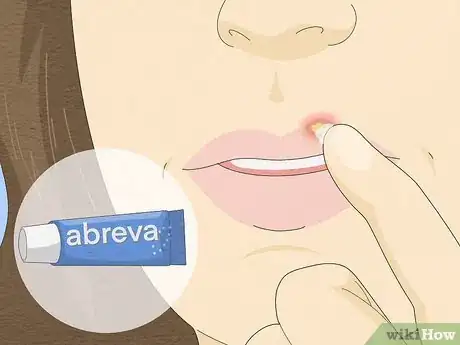

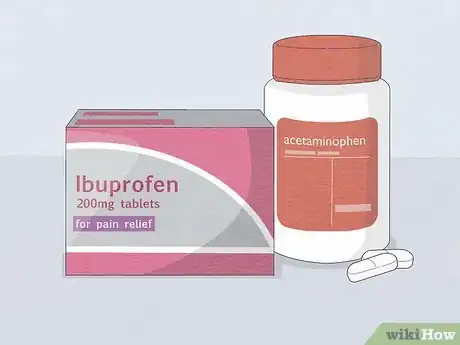
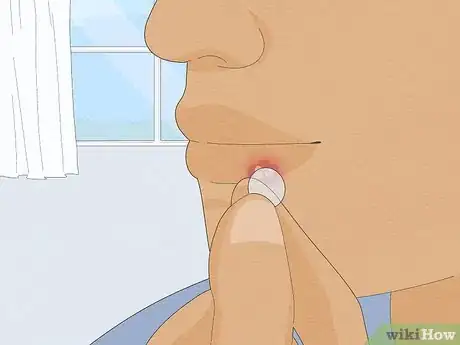
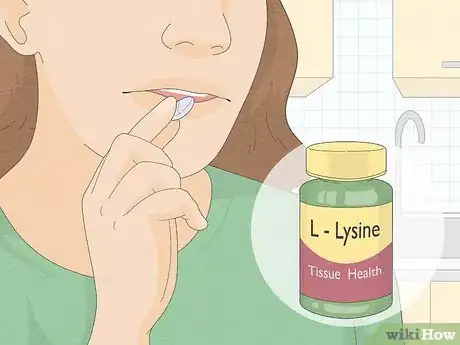
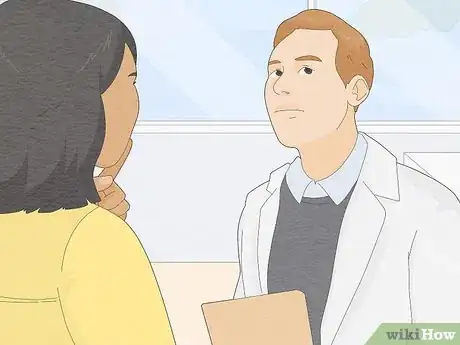
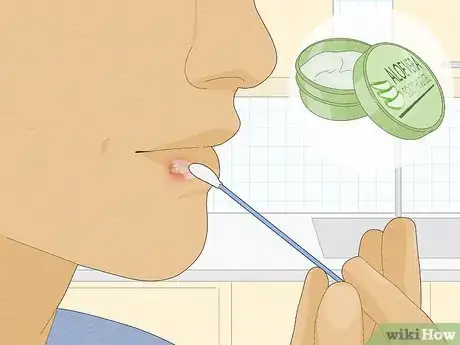
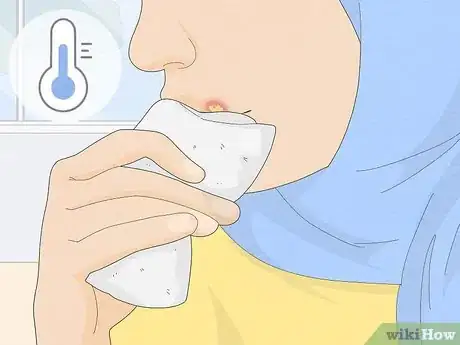
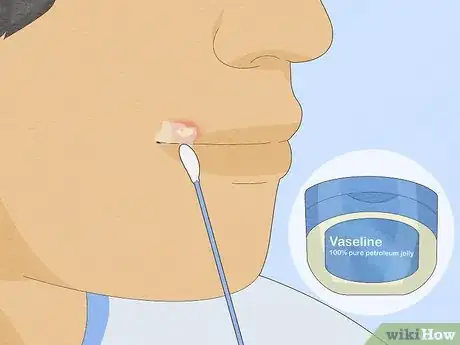
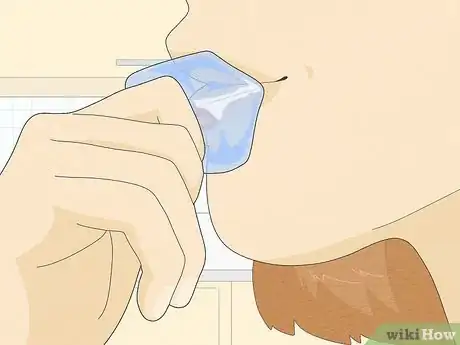
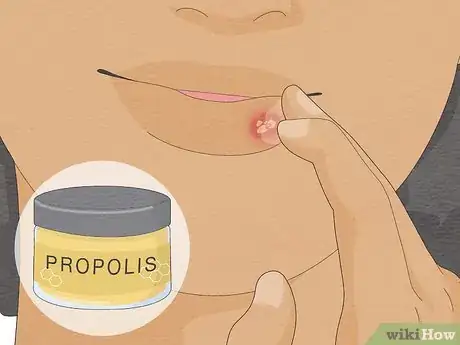
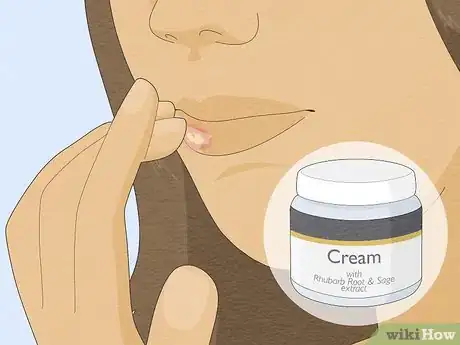
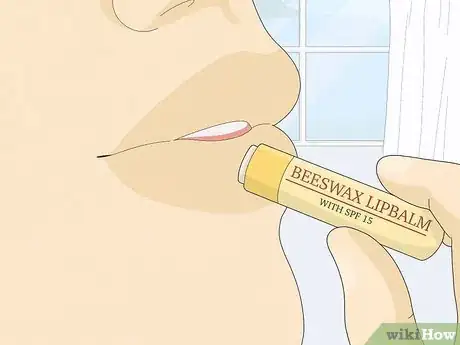
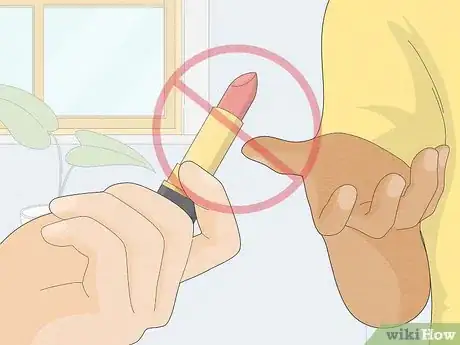
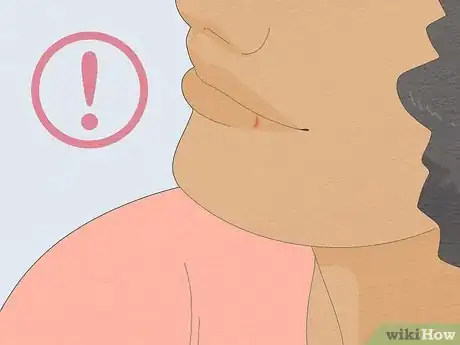
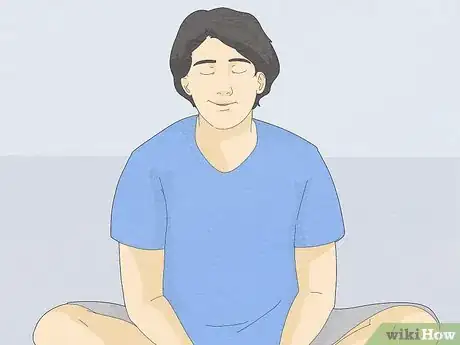
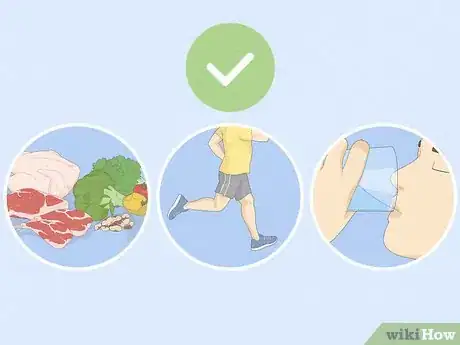
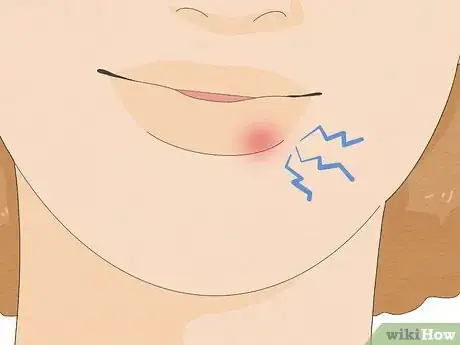
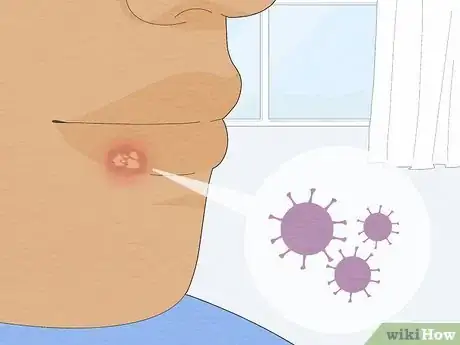
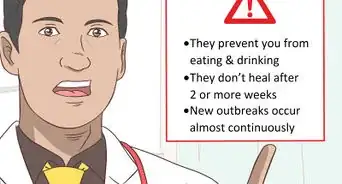
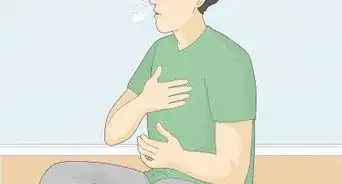
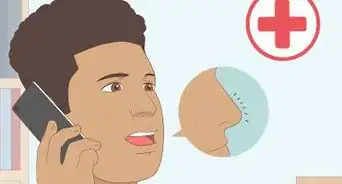




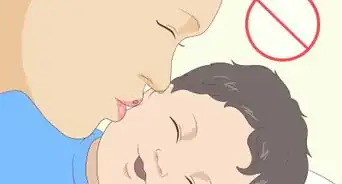

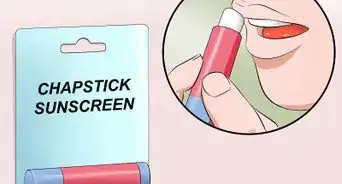
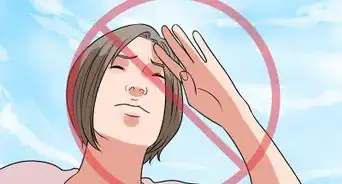
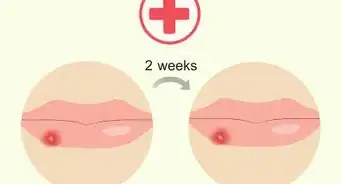









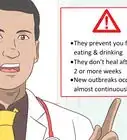
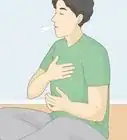
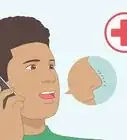




































Medical Disclaimer
The content of this article is not intended to be a substitute for professional medical advice, examination, diagnosis, or treatment. You should always contact your doctor or other qualified healthcare professional before starting, changing, or stopping any kind of health treatment.
Read More...